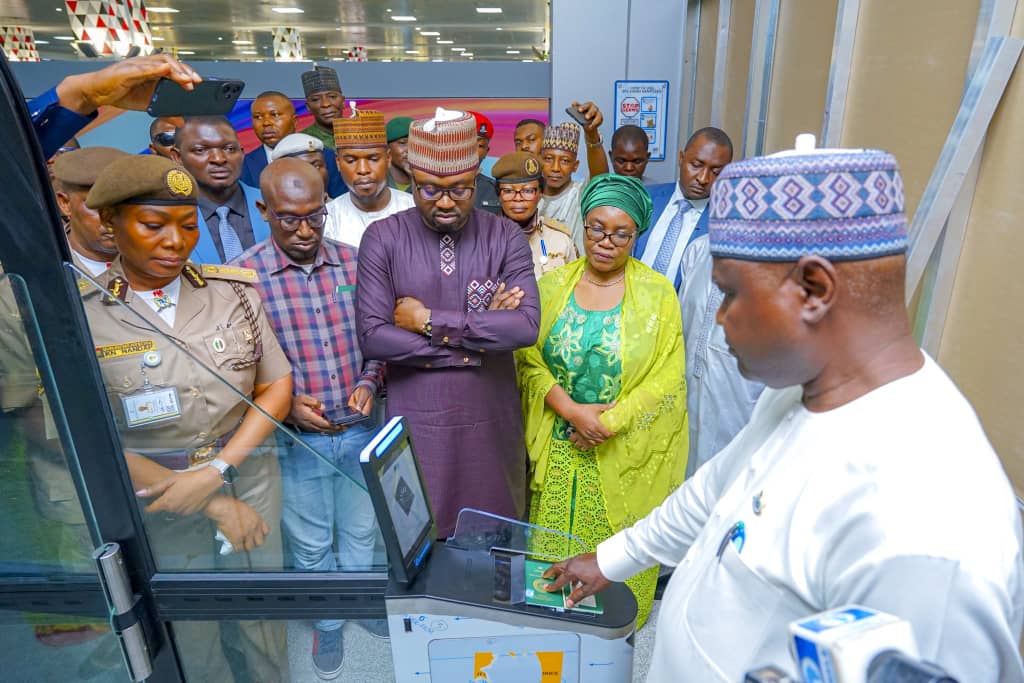Towards A New Nigeria (8): Tackling Corruption
AS putative as the world corruption is, it has been used often times outside its simple and implied meanings. Corruption, among other things, is the impairment, or debasement of integrity, virtue or moral principle. In a simplest form, corruption is the obtaining of power, influence, and other personal gains through illegitimate means. Opinions have it that some of the causes of corruption are poverty, social acceptance of corruption by the populace, weak government institutions, greed, poor education and illiteracy, ostentatious lifestyle, culture, people’s attitude and tribalism.
CORRUPTION remains an albatross in Nigeria, as it has been described as the bane of the development of the politico-economically struggling nation, just like many other underdeveloped or developing nations. Corruption is endemic in Nigeria, and it has permeated all strata of the country, leaving most Nigerians guilty. Even though some Nigerians would vigorously denounce corruption and corrupt people, they would at another breath apply themselves corruptly, as they hypocritically gain from what they disdain.
WE are of the view that this expansive culpability of Nigerians informed the complacency in fighting corruption, as this vice with a cancerous propensity, as once opinionated by Barrack Obama, the former American President, continues to ravage the nation. President Muhammadu Buhari had also warned Nigerians at the inception of his democratic government that corruption would kill Nigeria if Nigerians failed to kill it. Even though fighting corruption was one of the three major pillars of Buhari’s campaign promises, watchers are of the opinion that he has not done enough, as his regime winds down. This noticeable gap puts the imperative of fighting corruption on the next government of Asiwaju Tinubu.
APART from the outside opinion that Nigerians are fantastically corrupt, thereby vitiating personal integrity of Nigerians and collective respect for Nigeria, the Corruption Perception Index (CPI) of Nigeria, according to Transparency International (TI), for 2022 is that Nigeria ranks 150 out of 180 countries, scoring 24 out of 100 points. We are miffed by this worrisome record of Nigeria, just as we are not unaware of the damaging impacts the rating has had on the advancement of Nigerians and development of Nigeria.
THE Hope is not oblivious of the many reasons corruption has endemically devastated Nigeria, and some of these include the contractual process in the country that is negatively skewed, and against international best practices, as enunciated by the World Bank. Contract bidding are not transparently carried out; bureaucrats get involved in contract sorting and splitting, even as inflated contracts are poorly executed and, in some cases, abandoned.
OVER the years, the albatross issue of fuel subsidy has been used to siphon scarce resources, with critical areas like education, health, infrastructure, and so on, that should have been adequately funded are almost comatose. Corruption has been further fueled in Nigeria due to lack of adequate data for planning and governance, loose system that gets easily exploited, greed that is fired by challenging infrastructure owing to inactive government, unpaid salary that puts people under pressure to seek survival desperately and recklessly, materialistic tendencies, lack of rule of law and uncertain future. Corruption is the language of the country, and it has become a norm. No doubt, we are unequivocal about the fact that corruption is the bane of Nigeria development, and if we don’t deal with it will destroy the country.
GOING forward, The Hope does not only decry the negative implications corruption has inflicted on Nigeria and Nigerians, as evidenced in bad international image and nepotistic glamorisation of corruption, we are convinced that a political leadership that is transparent in its dealings would effectively tackle corruption. To this end, there should be a change of mindset by Nigerians, who should also elect credible leaders that can help set the right direction for the nation. Leaders should always lead by examples.
WE believe that there is the need for laws to be enforced to prevent and sanction corruption and corrupt tendencies. There is the need to end sacred cows by government, with emphasis being on equality before the law, reinforced in the supremacy of the law. Recruitment into the Nigeria Police and other anti-graft agencies like the EFCC and ICPC that have the responsibilities to handle corruption cases should be reviewed and made more stringent, to be able to ensure the credibility of personnel.
SIMILARLY, recruitment into the judiciary is a fundamental issue and, therefore, only courageous, and credible people should be appointed as judges. The Hope seeks unanimity from political leaders and Nigerians that corruption is not only cancerous, but refusal to kill it remains an existential threat to Nigerians and the nation.










